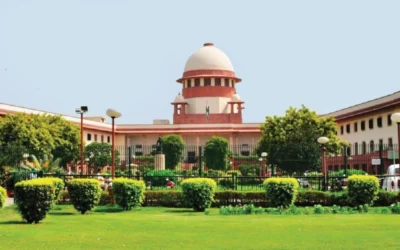Calcutta High Court Commutes Death Sentence In Murder Case


The Calcutta High Court has commuted a death sentence awarded to the petitioner for murder and dacoity to life imprisonment, and observed that judges should not be ‘bloodthirsty’ in such cases since sentencing someone to death would be an irreversible step that could not be undone even if new evidence were to surface.
A division bench of Justices Sabyasachi Bhattacharya and Uday Kumar held:
“Judges should never be bloodthirsty. Hanging of murderers has never been too good for them…If a person is hanged or otherwise killed by dint of a death penalty, the damage done is irreversible. Even if subsequently some new light is shed on the investigation or there is discovery of some new evidence or something to justify the reopening of investigation, there would be no chance of bringing back a life which has already been taken; thus, the death penalty is irreversible.”
The court was dealing with an appeal by a murder and dacoity convict, who had been sentenced to death by the trial court.
In commuting the death sentence, the court held that although the brutality of the multiple stabbing cannot be denied, when resisted in dacoity, ‘such brutality is not unheard of and cannot be classified as a “rare” event, let alone the “rarest of rare.” It was therefore held that the murder was committed in the context of dacoity.
It was held that the fundamental right to life under Article 21 was applicable to every person and no one could be deprived of their right to life without following the procedure established under law.
Article 21 is couched in a negative language, to the effect that no person shall be deprived of his life or personal liberty, the exception being “according to procedure established by law”. Law, to take away the single-most important fundamental right, that is, the right to life, has to be interpreted liberally, since otherwise the interpretation would go against the very grain of whatever the Constitution stands for, the court added.
It was held that Section 235(2) Cr.P.C. is required to be looked into. The said provision ensures that an accused is heard on the question of sentence if he or she is convicted. Thus, a separate hearing has been incorporated in the statute on the question of sentencing, over and above the hearing given on the question of conviction.
Section 354(3) of the Cr.P.C. goes one step ahead and provides that when the penalty is death/life imprisonment, the judgment shall state reasons for the sentence. An additional requirement has been incorporated in case of death sentence, for which “special reasons” have to be given by the Judge.
Thus, elaborating on the various mitigating circumstances in the present case, and relying on Supreme Court precedent on the topic, the court commuted the sentence.
Case: Aftab Alam Vs. The State of West Bengal
Case No: D.R. No. 5 of 2024

